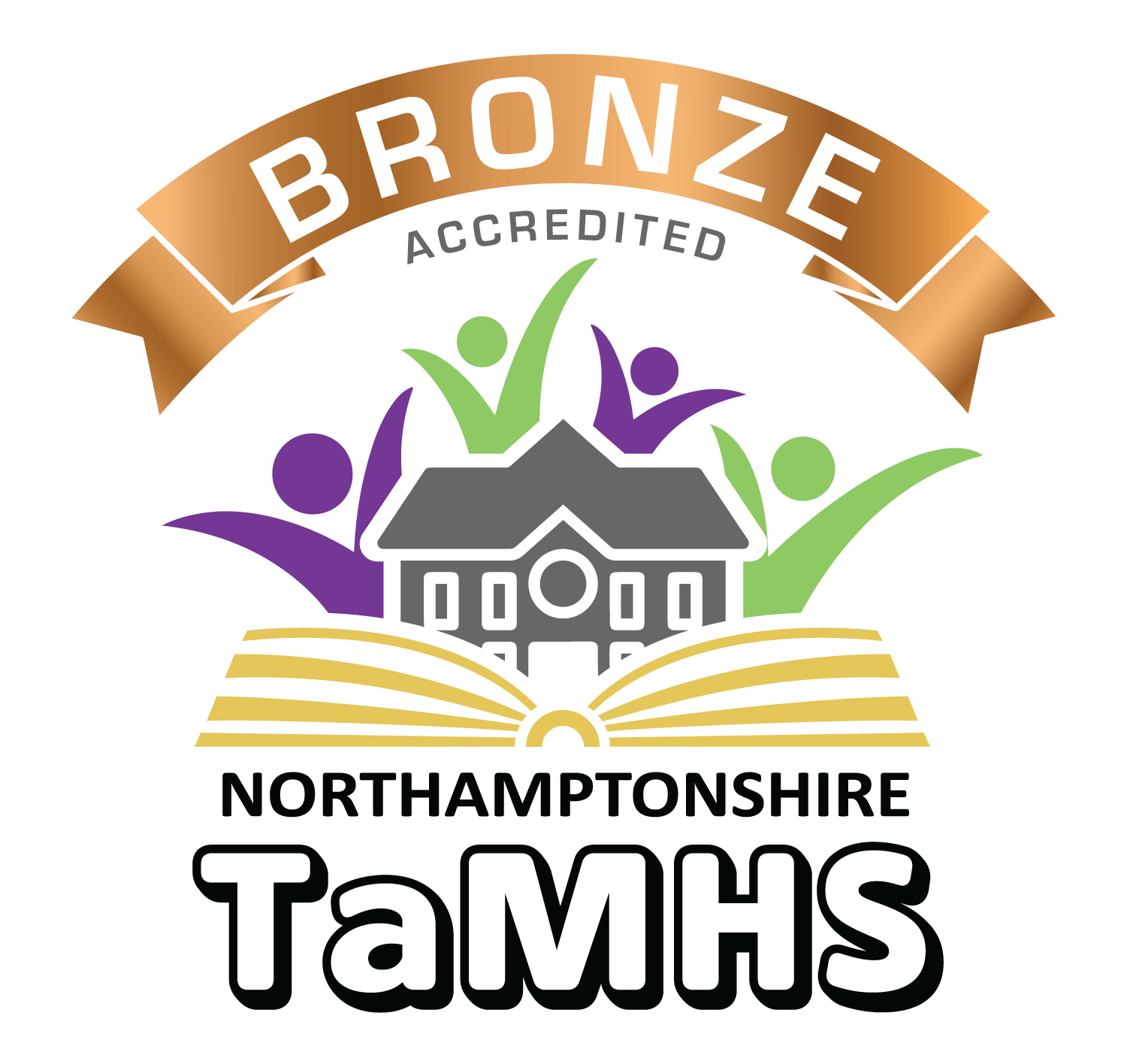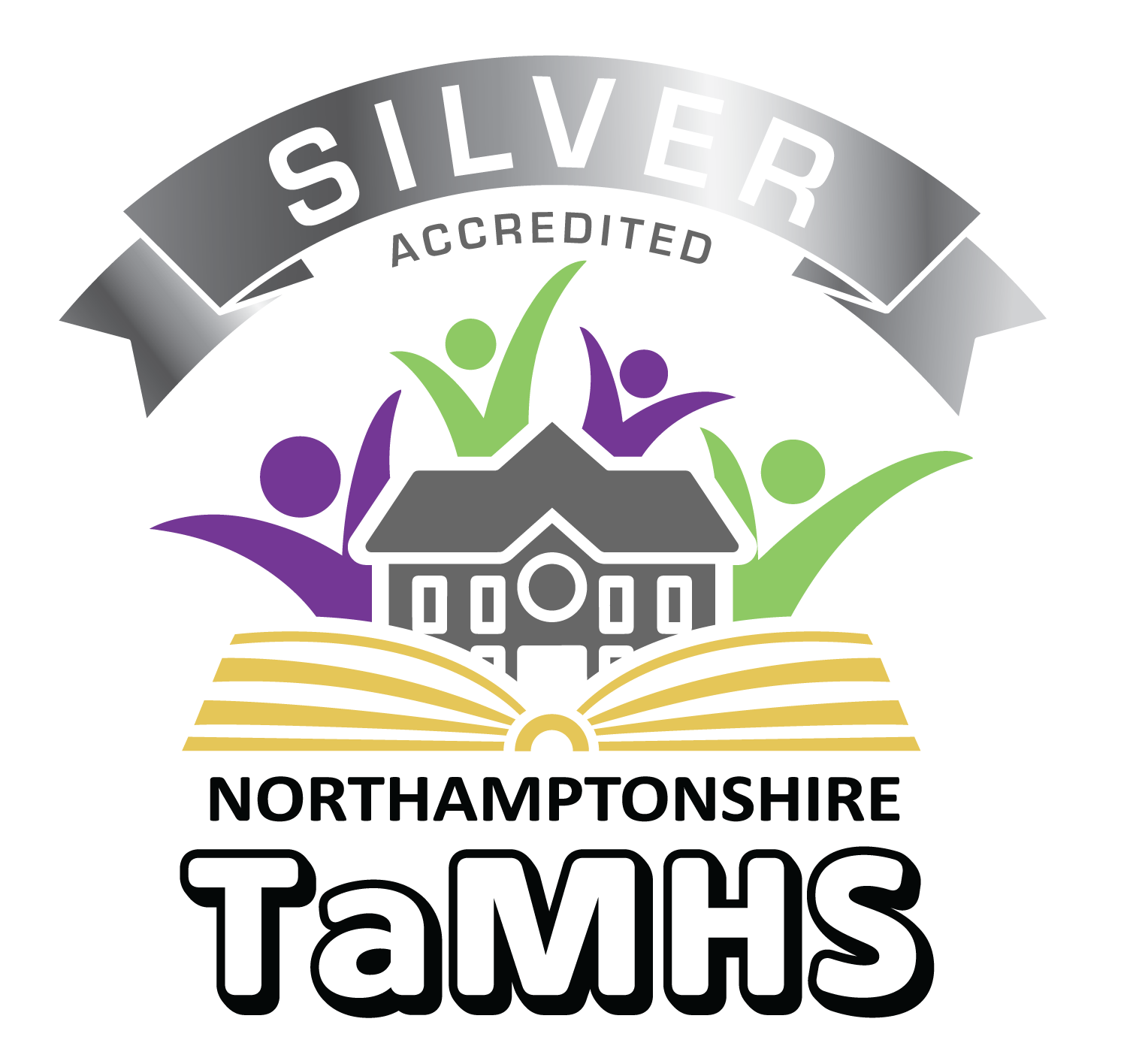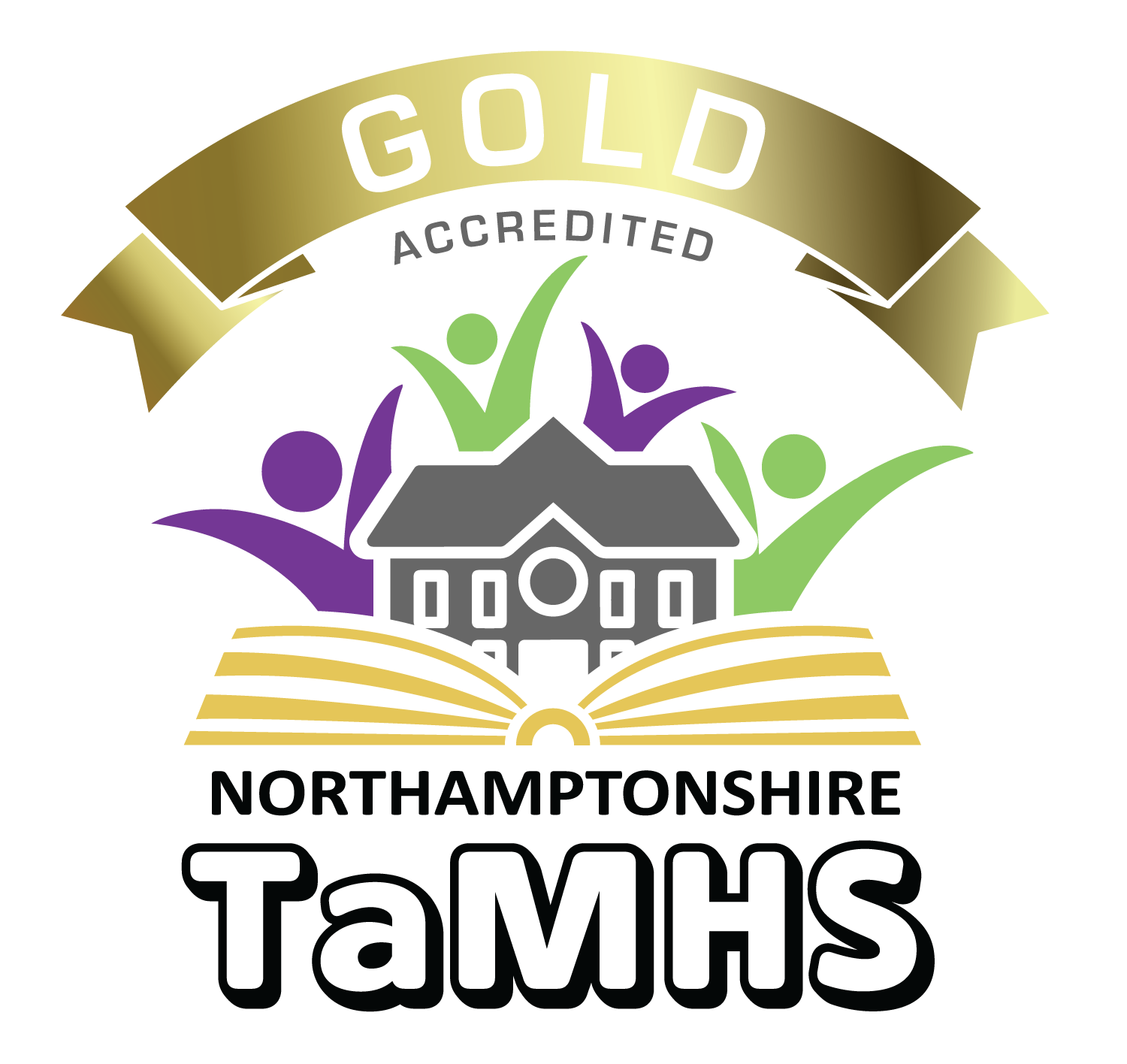The Hub
The Hub (helpful understanding base)
At Thrapston Primary School, we are proud to be able to offer the HUB (Helpful Understanding Base), a calm and supportive space designed to meet the emotional and pastoral needs of our pupils, families, and staff. The HUB provides a quiet area for children to regulate emotions, take a break from class when needed, and access focused support through small group sessions. It also serves as a welcoming environment for staff wellbeing, informal meetings with parents and carers, and parenting support programmes. Rooted in our REACH values—Respect, Empathy, Ambition, Collaboration, Honesty—the HUB reflects our commitment to nurturing positive relationships and inclusive support across our school community.
All our staff model to pupils how to look after themselves and others; encouraging them to seek help, support or advice whenever they need it.
"At Thrapston Primary School, we are a ‘talking school’—where every child is encouraged to speak up, seek support, and feel heard. We understand that life can be challenging, and our dedicated staff and Pastoral Care Team are here to ensure every pupil feels safe, supported, and ready to learn. Through strong relationships and our REACH values, we nurture wellbeing and empower children to thrive."
Examples of the pastoral care team's work
- Listening to children and discussing anything that is worrying them
- Helping to raise a child’s confidence and self esteem
- Developing emotional literacy and building resilience
- Encouraging children to do their best in school and setting targets
- Developing social skills and helping to manage friendship issues
- A range of academic and social group interventions
- We have an external counsellor and a Play Therapist, who both come into school weekly to support children.
We have achieved the Northamptonshire Targeted Mental Health in Schools (TAMHS) Bronze, Silver and Gold awards and we were delighted to achieve the national Wellbeing Award with Optimus Education.




Wellbeing Support Overview
Worry Monsters in Each Class
- What they are: Soft toys or boxes where children can post their worries.
- Benefits: Encourages children to express concerns safely and discreetly, promoting emotional literacy and early intervention.
Friendship Benches
- What they are: Designated seating areas where children can go if they’re feeling lonely or need a friend.
- Benefits: Promotes peer support, reduces social isolation, and encourages kindness and inclusion.
Small Intervention-Focused Groups
- What they are: Targeted sessions for pupils needing extra emotional or social support.
- Benefits: Builds confidence, emotional regulation, and social skills in a safe, small-group setting.
Zones of Regulation
- What it is: A framework that helps children identify and manage their emotions using color-coded zones.
- Benefits: Improves self-awareness, emotional control, and communication about feelings.
Bully Busters
- What they are: A pupil-led / staff-supported initiative to tackle bullying and promote positive behaviour.
- Benefits: Empowers pupils, fosters a culture of respect, and provides peer-led support.
School Prefects
- What they are: Older pupils who take on leadership and mentoring roles.
- Benefits: Encourages responsibility, role modelling, and peer support across year groups.
The Hub
- What it is: A dedicated space for emotional regulation, sensory support, and pastoral care.
- Benefits: Provides a calm, safe environment for pupils to reset, reflect, and receive support.
Pastoral Support at Break and Lunch (in The Hub)
- What it is: Staff available during unstructured times to support pupils emotionally and socially.
- Benefits: Reduces anxiety, prevents incidents, and ensures pupils feel supported throughout the day.
Restorative Practice (All Staff Aware)
- What it is: A whole-school approach to resolving conflict and building relationships.
- Benefits: Promotes accountability, empathy, and long-term behaviour change.
Wellbeing Wallets
- What they are: Personalised resources or tools pupils can access to support their mental health.
- Benefits: Encourages independence, self-regulation, and ownership of wellbeing strategies.
Calendar Events Celebrating SEMH and Differences
- What they are: Whole-school events and awareness days (e.g. Mental Health Week, Autism Acceptance).
- Benefits: Fosters inclusion, celebrates diversity, and raises awareness of mental health.
PSHE Curriculum
- What it is: Structured lessons on personal, social, health, and emotional education.
- Benefits: Builds resilience, empathy, and life skills; supports statutory RSE requirements.
Sensory Breaks
- What they are: Short, structured activities to help pupils regulate sensory input.
- Benefits: Improves focus, reduces anxiety, and supports pupils with sensory processing needs.
Movement Breaks
- What they are: Physical activities integrated into the day to support regulation and focus.
- Benefits: Enhances concentration, reduces restlessness, and supports physical and mental health.
Sensory Soft Starts to the Day
- What they are: Calm, sensory-friendly activities at the beginning of the school day.
- Benefits: Eases transitions, reduces anxiety, and prepares pupils for learning.
General Soft Start to the Day
- What it is: A gentle, flexible start to the school day with time for settling in.
- Benefits: Supports emotional readiness, builds relationships, and reduces morning stress.
Mental Health and Wellbeing (Children/Young Adults)
Young Minds
https://www.youngminds.org.uk/about-usHelpline:0808 802 5544
Youth Works https://www.youthworksnorthamptonshire.org.ukService Six
https://www.servicesix.co.uk/
CHAT Youth Counselling
https://www.chatyouthcounselling.org.uk/
Banardos
https://www.barnardos.org.uk/what-we-do/helping-families
CAMHS: CAMHS stands for Child and Adolescent Mental Health Services.
CAMHS are the NHS services that assess and treat young people with emotional, behavioural or mental health difficulties. Parents, carers, young people, and professionals can call the CAMHS/CYPMHS Consultation Line, 0800 170 7055 (Monday-Friday, 9am-4pm).
If you are in a crisis (at risk of self-harm or suicide), the CAMHS/CYPMHS Crisis Team is open 24/7 and can be accessed by calling 0800 170 7055.
Young Carershttps://www.northamptonshire-carers.org/young-carers?locale=en
Mental Health and Wellbeing (Adults)
Local GP surgery
Adult mental health navigators
https://www.nhft.nhs.uk/mentalhealth-number
MIND mental health info line
https://www.northamptonshiremind.org.uk/0300 123 3393
Samaritans
If you are worried that you are at risk of suicide you can also contact the Samaritans by visiting their website:
www.samaritans.org or call 116 123 for free 24hrs/day
Alcoholics Anonymous AA:
https://www.alcoholics-anonymous.org.uk/0800 917 7650help@aamail.org
Northamptonshire Carers
https://www.northamptonshire-carers.org/Pages/Category/support-we-provide